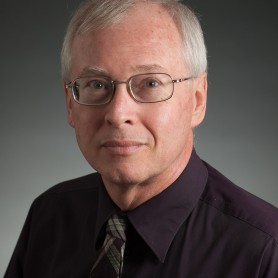Dr. Daniel Fleetwood
Vanderbilt University Department of Electrical Engineering and Computer Science
Lectures
1/f Noise, Radiation Effects, and Defects in Microelectronic Devices
Low-frequency (1/f) noise is observed in a remarkable number of diverse cosmological, biological, economic, and electronic systems. This talk will provide an introduction to low-frequency noise in microelectronics, describe basic models that enable insight into defect concentrations and energy distributions in MOS devices, as well as the microscopic nature of the defects responsible for 1/f noise and radiation response. Examples will be presented that illustrate 1/f noise and radiation effects in Si MOS transistors, AlGaN/GaN HEMTs, and MOSFETs based on 2D materials.
Moore’s Law and Radiation Effects on Microelectronics
55 years ago Gordon Moore postulated that the number of components in an integrated circuit would double every 1-2 years. This trend still holds, making it one of the longest, sustained geometric progressions in the history of the industrialized world, enabling revolutions in computing and in virtually every aspect of technology that is enabled or enhanced by computing. Transistor dimensions have decreased from tens of microns ~ 7 nanometers over this time period. In this presentation, we will examine the effects of Moore’s Law size and voltage scaling of transistors and integrated circuits on the vulnerability of microelectronics to ionizing radiation effects in near-Earth space and terrestrial applications. We will also discuss limitations that these vulnerabilities place on future highly-scaled integrated circuit technologies.
Radiation Effects in a Post-Moore World
Abstract: In this talk, a number of milestones in the evolution and understanding of total-ionizing-dose and single-event effects are reviewed within the context of classical Dennard scaling. This discussion focuses on the discovery of fundamental mechanisms, development of radiation-tolerant IC technology, and increasing maturity and complexity of Si-MOS-based devices, circuits, and systems. Examples are shown that illustrate how the end of Dennard scaling has influenced radiation effects in current technology generations, due to the increasingly complex and diverse materials and devices that are now incorporated. The radiation responses of devices with alternative channels to silicon and transistors based on 2-D materials are discussed, with an emphasis on opportunities and challenges for ultimately scaled devices. In the future, many types of microelectronic devices and ICs will become more vulnerable to radiation effects and more difficult to test in a practical and cost-effective manner, which will become an ongoing challenge for the international radiation effects community. [Note: This presentation is a sequel to the presentation listed above: “Moore’s Law and Radiation Effects on Microelectronics”.]
About

Dan Fleetwood received his Ph.D. from Purdue University in 1984. He joined Sandia National Laboratories in 1984 as a Member of the Technical Staff. In 1990, he was named a Distinguished Member of the Technical Staff. Dan accepted a position as Professor of Electrical Engineering at Vanderbilt University in 1999, and holds a secondary appointment as Professor of Physics. In 2001-2003 he served as Associate Dean for Research in the School of Engineering. From 2003-2020 he served as Chairman of Vanderbilt’s Electrical Engineering and Computer Science Department. In 2009 he was named Olin H. Landreth Chair in Engineering, a position that he still holds. Dan is author or co-author of more than 600 publications on radiation effects and low frequency noise, which have been cited more than 25,000 times (Google Scholar). He received the 2009 IEEE Nuclear and Plasma Sciences Merit Award, the society’s highest technical honor, and is a Fellow of IEEE, the American Physical Society, and the American Association of the Advancement of Science.